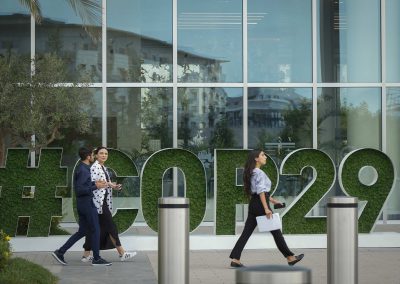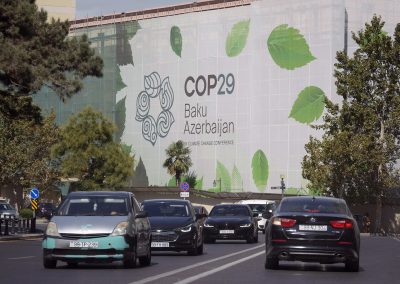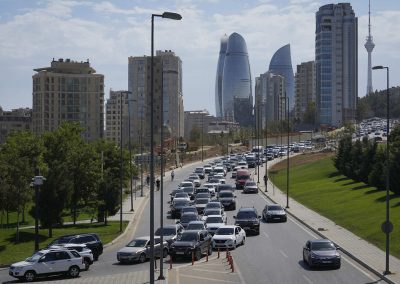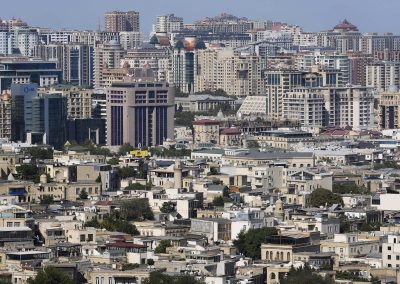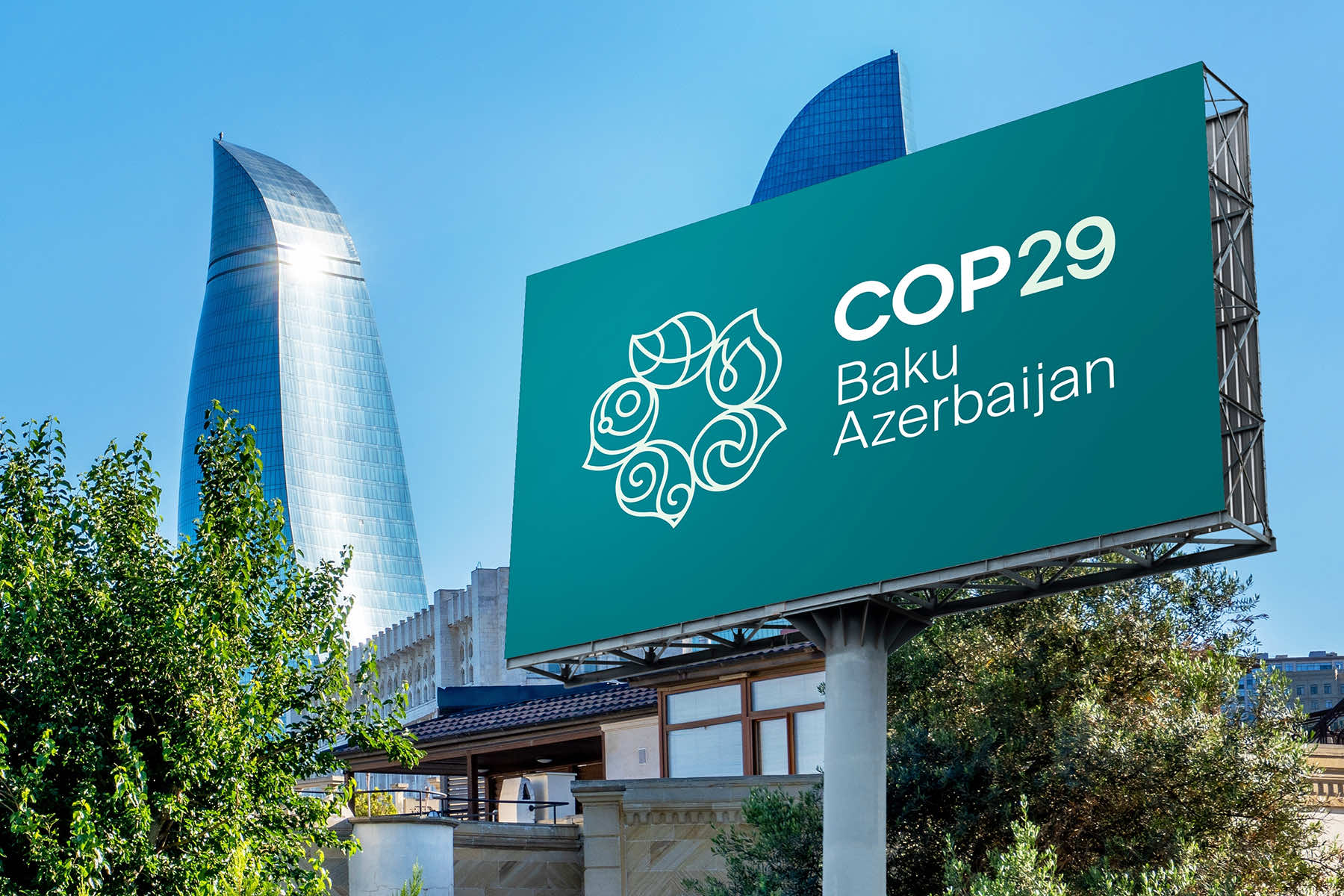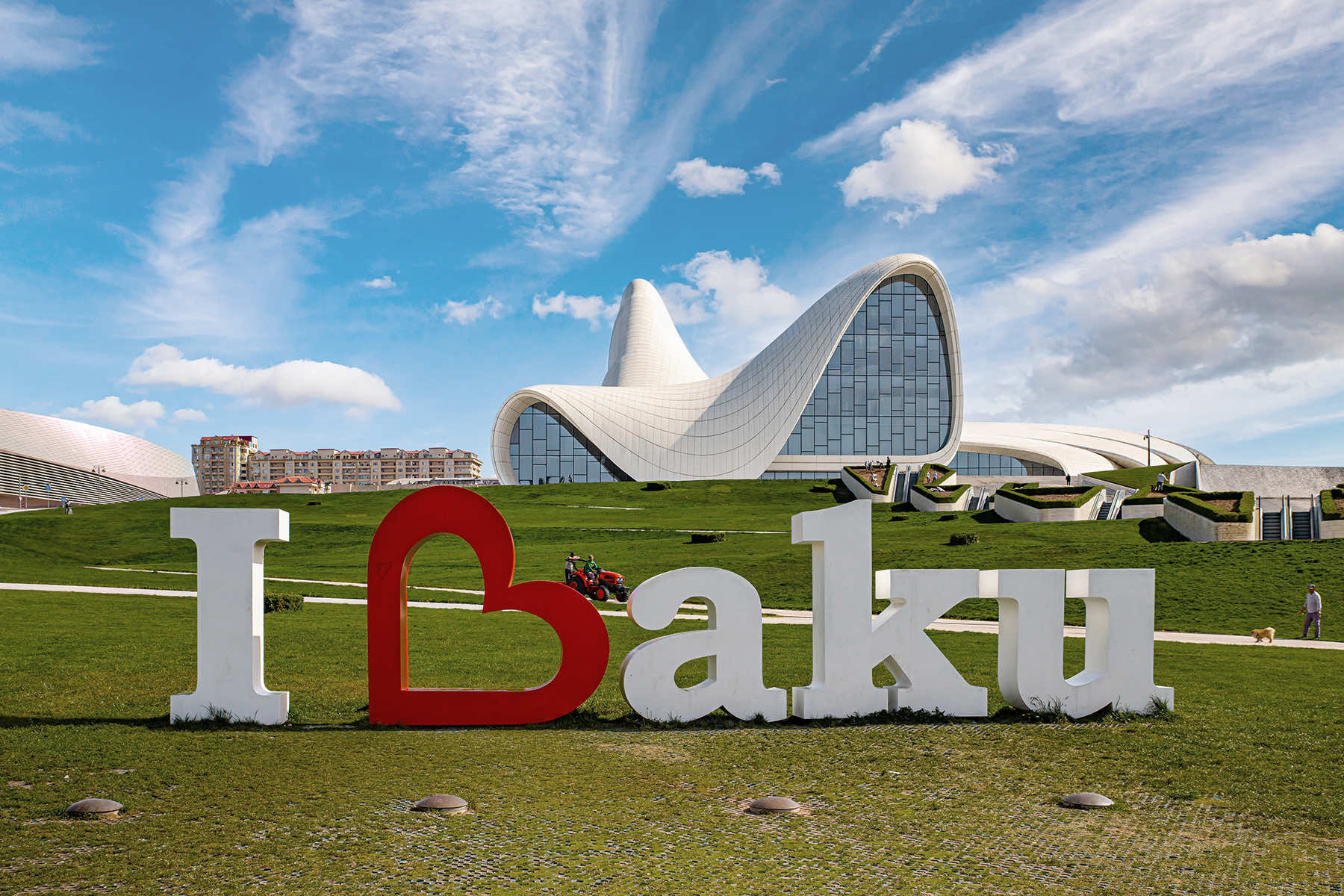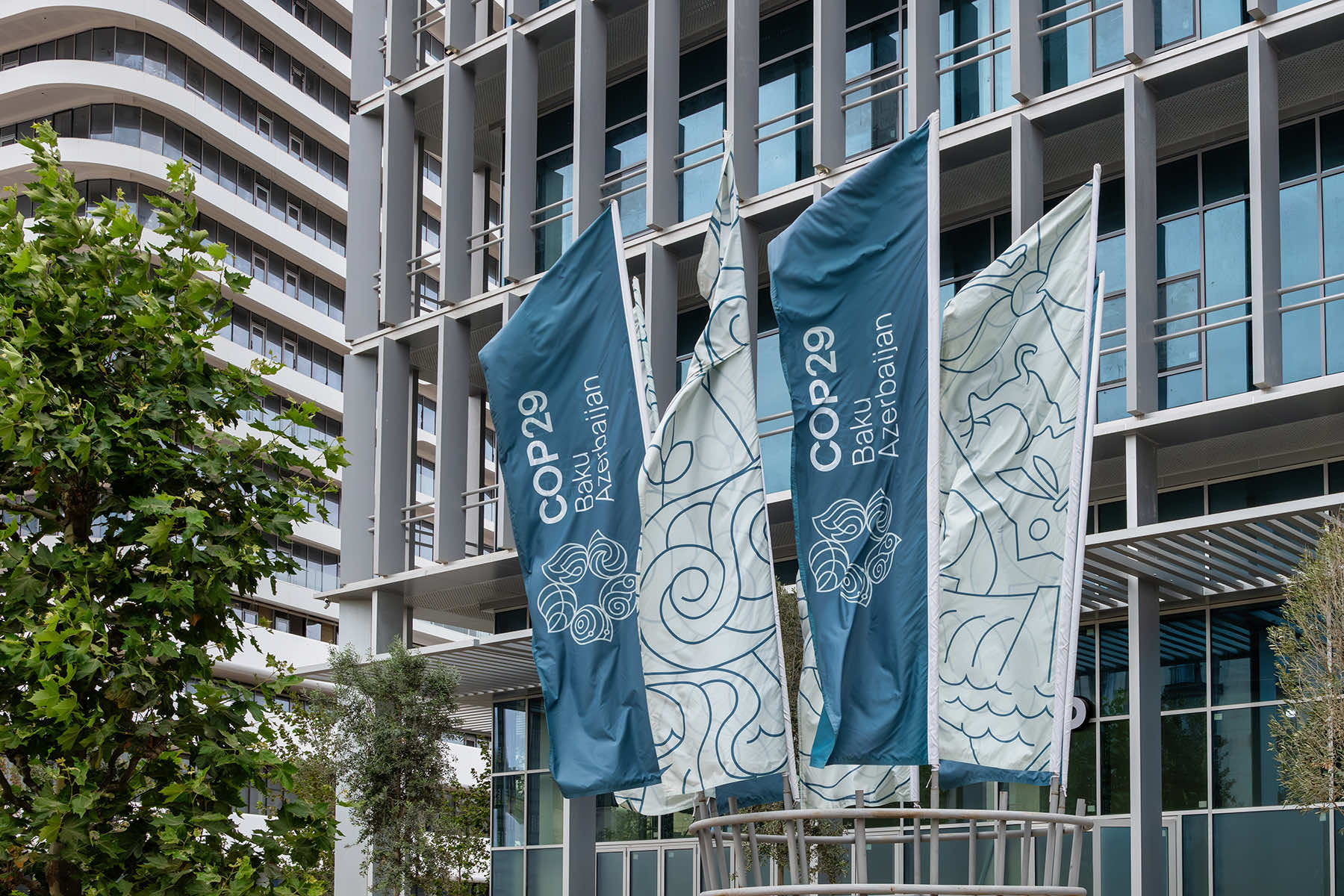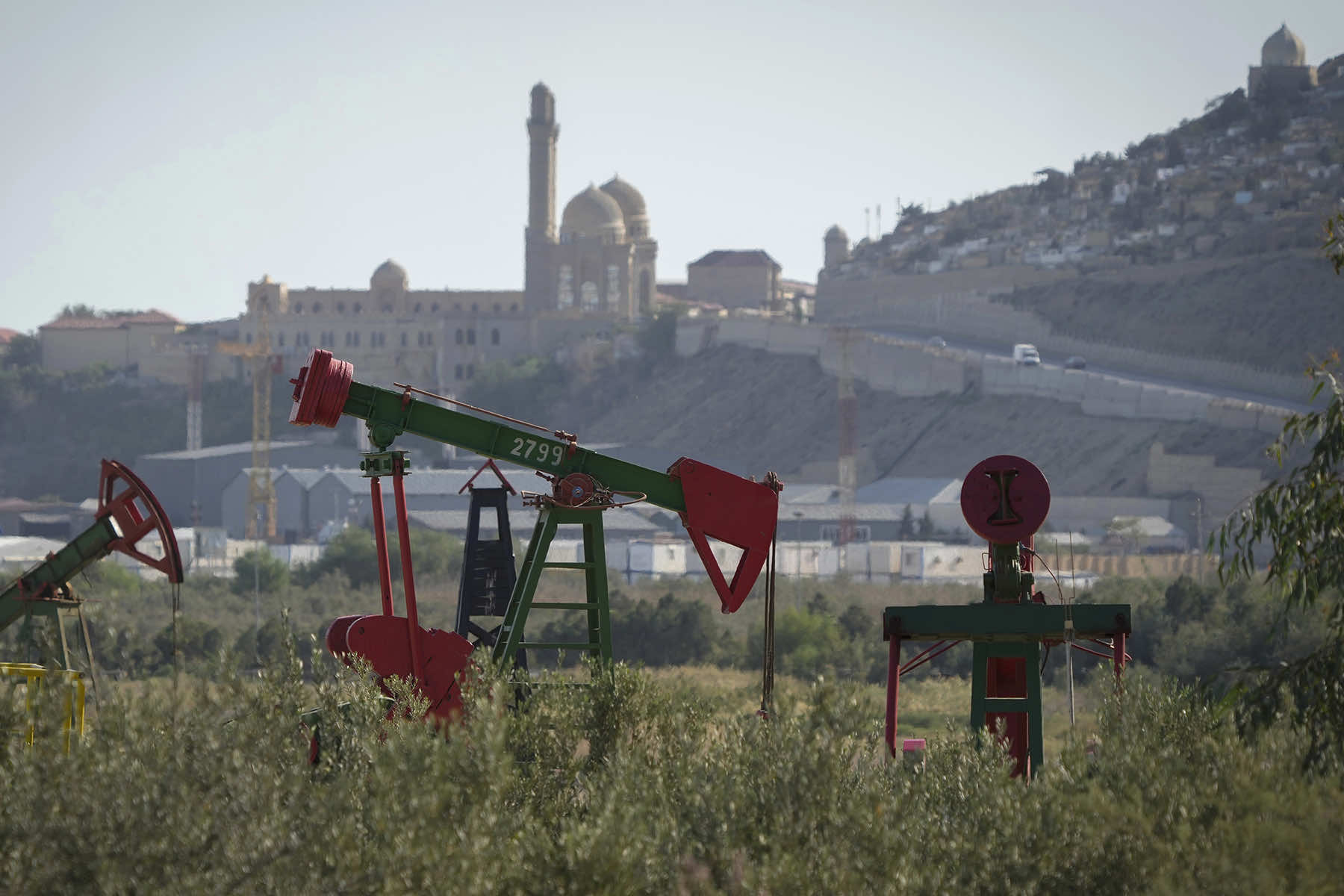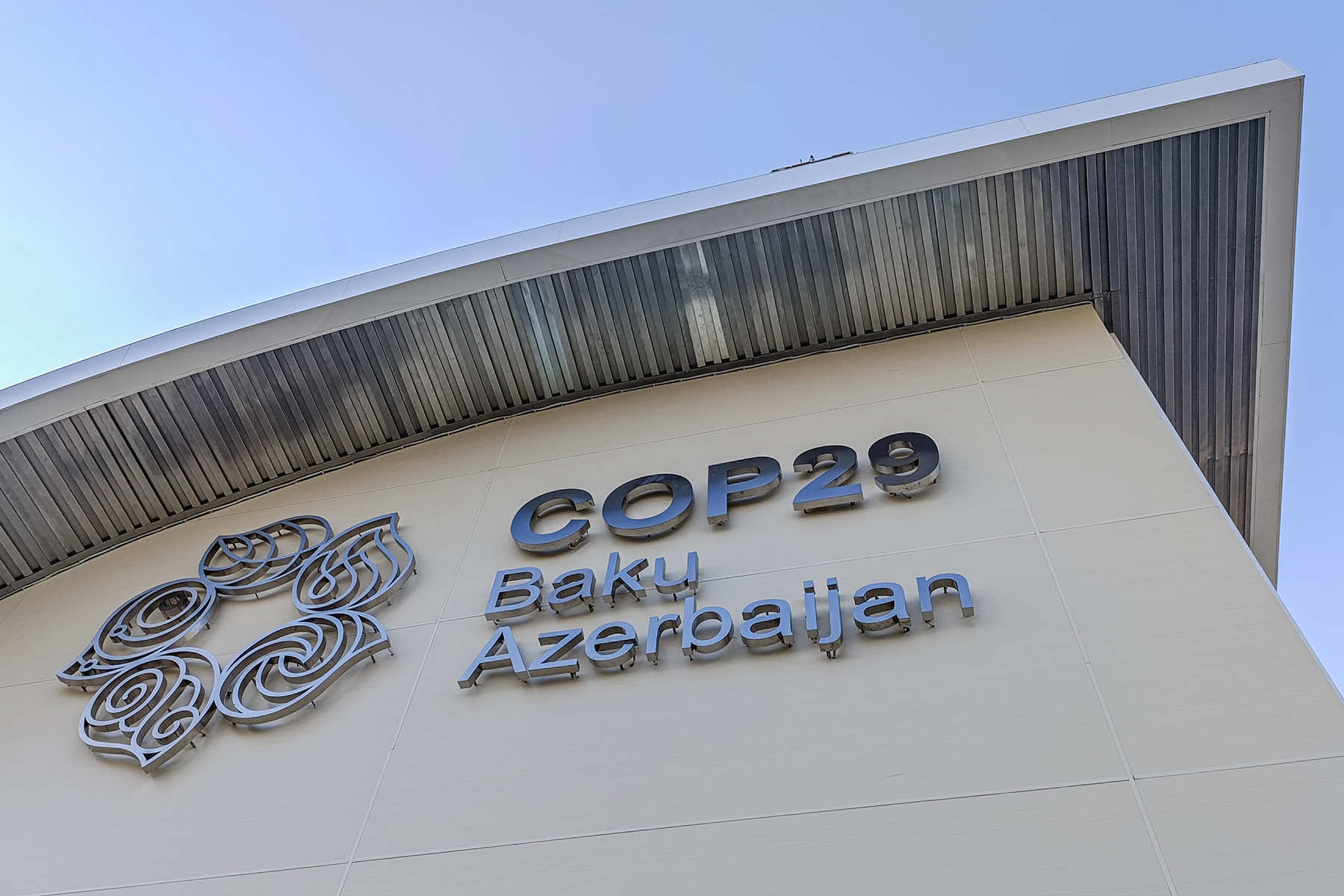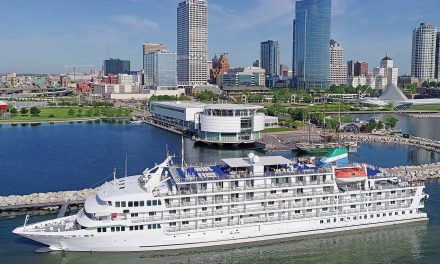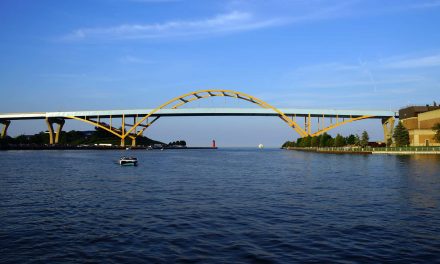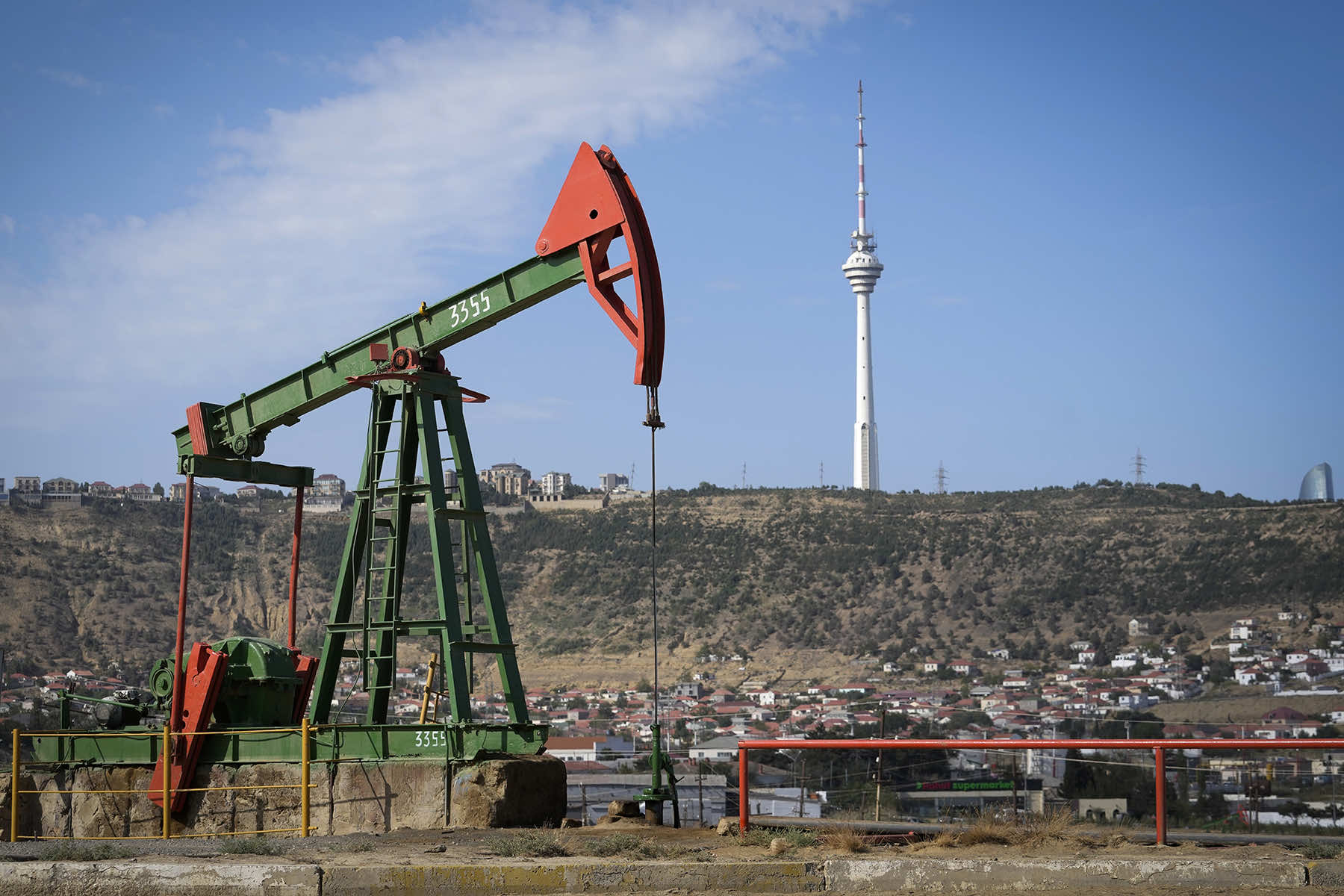
As world leaders and climate experts converge on Baku for the COP29 climate conference, an unmistakable contradiction lingers in the air, both figuratively and literally.
Baku, the Azerbaijani capital, is shrouded in the odor of its fossil fuel wealth, a jarring contrast to the summit’s mission to curb global carbon emissions. Over 100 heads of state and government officials are expected to attend the conference, which runs from November 11 to 22, 2024.
The setting underscores the difficult choices facing nations still largely reliant on fossil fuels, especially as the world’s most influential players continue to debate climate finance and policy with disparate interests.
At the heart of this year’s conference is a central question, can nations agree on urgent and unified action to meet the Paris Agreement targets? Or will entrenched fossil fuel interests and competing political agendas delay decisive action yet again?
With a global temperature rise hovering near 2.12°F in 2023, which scientists agree is a critical threshold to avoid catastrophic climate consequences, COP29 is burdened with immense expectations. But from the outset, conflicting dynamics – both within Azerbaijan and the broader geopolitical landscape – threaten to compromise its goals.
FOSSIL FUEL WEALTH AND AZERBAIJAN’S ROLE AS COP HOST
For Azerbaijan, hosting COP29 is both an honor and a strategic opportunity. The nation’s economy has been heavily shaped by its abundant oil reserves, a legacy that has empowered its government but also kept it highly reliant on fossil fuels. Oil and gas make up over 90% of Azerbaijan’s exports, leaving it among the least progressive nations regarding climate reform. In an interview earlier this year, Azerbaijani President Ilham Aliyev defended his country’s energy stance, claiming oil and gas are “a gift from God” necessary to drive Azerbaijan’s prosperity and economic growth.
Despite the appeal to divest from fossil fuels, Aliyev’s government has made scant investments in renewable energy. According to Climate Action Tracker, Azerbaijan’s climate policies are rated as among the weakest globally. Still, Aliyev appears intent on using COP29 to enhance his administration’s international standing, particularly as the event draws attention to the need for climate finance for developing nations. However, critics argue that Azerbaijan’s efforts to position itself as an environmental leader are little more than greenwashing tactics meant to obscure its reliance on fossil fuels and its domestic human rights abuses.
CRITICISM OF AZERBAIJAN’S HUMAN RIGHTS RECORD
Hosting COP29 has also stirred significant opposition from human rights organizations. Azerbaijan’s track record of political repression and media censorship has drawn widespread condemnation, with critics warning that the country’s authoritarian stance undermines its ability to host an impartial, inclusive climate conference. Human Rights Watch highlighted that, under Aliyev’s rule, repression has intensified. Environmental activists and government critics routinely face imprisonment, and reports of intimidation and even violence against journalists have cast a shadow over Baku’s hosting role.
GEOPOLITICAL TENSIONS AND ACCUSATIONS FROM ARMENIA
Beyond Azerbaijan’s internal challenges, the nation’s fraught relationship with Armenia has added another layer of controversy to COP29. Armenian environmental groups and NGOs have accused Azerbaijan of using the conference to gloss over allegations of ecological degradation in the Nagorno-Karabakh region. In a joint statement, over 50 Armenian organizations condemned Azerbaijan for “mass deforestation” and “devastating ecosystems” in the recently occupied areas of Nagorno-Karabakh. They argue that Azerbaijani forces have restricted the access of local Armenians to resources like water through strategic land mines and road networks.
The Armenian NGOs also voiced concerns about the destruction of Armenian cultural heritage in the region, describing Azerbaijan’s actions as violations of international law. While Azerbaijan denies these claims, asserting that its sovereignty over Nagorno-Karabakh is supported by United Nations resolutions, the tension underscores the broader complexities that geopolitical disputes bring to the climate dialogue. Armenian activists have urged conference attendees to address Azerbaijan’s alleged abuses, though few expect such discussions to be permitted openly, as Azerbaijan’s hosting contract with the UN grants it authority to suppress any critiques voiced at the event.
CLIMATE FINANCE AS THE KEY FOCUS AT COP29
Despite the controversies, a primary agenda at COP29 will be climate finance, with urgent discussions on how developed nations can support poorer countries in adapting to and mitigating climate change effects. Under the Paris Agreement, wealthier nations pledged to provide $100 billion annually to assist developing countries in reducing emissions and managing the effects of climate change. Although the 2020 deadline for that commitment was missed, and the target has only been met in recent years, there remains a critical need to establish a new and more substantial climate finance goal.
Current proposals suggest that as much as $2.4 trillion per year will be needed for developing countries to meet climate targets, a sum that only global cooperation and major policy reform can potentially meet. However, domestic politics in key nations pose great challenges. With Donald Trump’s recent return to the White House, there are concerns that the United States may reduce its already limited contributions to climate finance. Historically, the U.S. has lagged behind the European Union in funding climate initiatives. Environmental advocates fear that Trump’s “America First” approach will further hinder progress on this front.
PROPOSALS FOR INNOVATIVE FINANCING SOLUTIONS
Facing the daunting challenge of raising trillions for climate action, policymakers are exploring various “innovative financing” mechanisms. Ideas under consideration include levies on high-carbon industries like oil and gas, a “billionaire tax” to tap into private wealth, fees on frequent air travelers, and redirection of subsidies currently benefitting fossil fuel industries. However, these suggestions have met with resistance, particularly from nations wary of the political repercussions. For instance, while the Biden administration was open to some reforms, Treasury Secretary Janet Yellen previously opposed any form of wealth tax. Trump’s administration is likely to take an even more hardline stance, potentially stymieing global efforts to advance any financial reforms.
The expectation is that multilateral institutions such as the World Bank and the International Monetary Fund will play an expanded role in addressing the climate finance gap. Developed nations have proposed structural reforms to these entities, aiming to increase their lending capacity and facilitate climate-related projects in vulnerable regions. Conversely, critics argue that reliance on multilateral banks can be problematic, particularly for low-income countries that may struggle to meet the stringent borrowing terms often imposed by such institutions.
DIVISIONS OVER FOSSIL FUEL POLICY AND FUTURE COMMITMENTS
COP29’s agenda will also address one of the most contentious issues under consideration, the transition away from fossil fuels. Although previous COPs have seen pledges to phase down fossil fuel usage, these commitments have often been diluted by pressure from oil-rich nations. At COP28 in Dubai last year, delegates finally agreed to a historic resolution to “transition away” from fossil fuels, while specifics remained vague. Oil-rich states, including Saudi Arabia and Russia, have since pushed to soften the language. Azerbaijan, heavily reliant on oil, may align with those interests.
Climate activists continue to insist on maintaining the 3.6°F target, even as some factions advocate retreating to a 2.7°F goal. For nations most vulnerable to climate impacts, particularly low-lying islands at risk of submersion, the distinction between these two temperature thresholds could mean the difference between survival and unmanageable environmental catastrophe.
COP29 AND THE FUTURE OF CLIMATE ACTION
As the delegates prepare for another round of negotiations, the stakes have never been higher. For developing nations and climate-vulnerable populations, the outcome of COP29 will have far-reaching implications. Leaders like Harjeet Singh of the Fossil Fuel Non-Proliferation Treaty Initiative argue that, without substantial commitments from wealthier nations, the global fight against climate change is at risk.
In the end, COP29 will be judged not by the grandeur of its host city or the diplomacy on display but by the practical steps taken toward a sustainable future. With conflicting interests and political tensions clouding the discussions, the world waits to see if Baku will deliver on the promise of urgent climate action or fall victim to a stalemate that could continue to endanger the planet’s future.
MI Staff
Sergei Grits (AP), and Kadagan, Rustamli Photos, Zulfugar Graphics (via Shutterstock)

